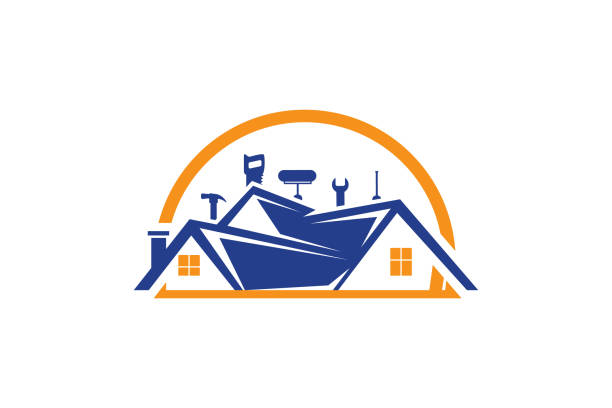As a general contractor, your business faces unique risks and challenges every day. Whether you’re overseeing a team of subcontractors, managing large construction projects, or dealing with unexpected incidents on the job site, having the right business insurance coverage is crucial to protecting your business and assets. However, navigating the different types of insurance available can be overwhelming. That’s why it’s important to understand the types of coverage you need and how each policy can help safeguard your business.
In this post, we’ll break down the most common types of general contractor insurance and explain how they protect your business.
1. What is General Contractor Insurance?
General contractor insurance is a comprehensive term that encompasses various types of insurance policies designed to protect general contractors and their businesses from the myriad risks associated with construction projects. This includes essential coverages like general liability insurance, workers’ compensation insurance, and commercial auto insurance, among others. Each of these policies plays a crucial role in providing financial protection against accidents, injuries, property damage, and other unforeseen events that can occur during a construction project.
For general contractors, having the right insurance coverage is not just about mitigating financial losses; it’s also about building trust with clients and ensuring compliance with regulatory requirements. With robust insurance coverage in place, general contractors can focus on their work with confidence, knowing they are safeguarded against potential risks and liabilities. This peace of mind allows them to manage their projects more effectively and maintain a professional reputation in the construction industry.
1. General Liability Insurance
One of the most essential types of insurance for general contractors is general liability insurance. This general liability coverage protects your business from financial losses arising from third-party claims involving bodily injury, property damage, or personal injury that occur as a result of your work.
A general liability insurance policy is particularly necessary for contractors in high-risk trades like construction and roofing, where it can also affect licensing requirements and insurance premiums.
Example scenarios:
- A passerby trips over a construction material at a job site and gets injured.
- A subcontractor damages a client’s property while working on a project.
- A neighbor claims that your work caused damage to their property.
General liability insurance can cover legal fees, medical expenses, and damages if you’re held responsible for such incidents. Without it, your business could face significant out-of-pocket costs in the event of a claim.
2. Workers’ Compensation Insurance
If you have employees, workers’ compensation insurance is mandatory in most states. It provides benefits to workers who are injured or become ill as a result of their job duties, covering medical bills, lost wages, and rehabilitation costs.
Construction sites are inherently risky, and accidents can happen even with the best safety protocols in place. Workers’ comp ensures that injured employees receive proper care and compensation while shielding your business from lawsuits related to workplace injuries.
Key benefits include:
- Medical treatment for injured workers
- Compensation for lost wages while employees are unable to work
- Protection for your business from legal action taken by employees
3. Builder’s Risk Insurance
Builder’s risk insurance (also known as course of construction insurance) covers property damage to a building under construction or renovation. This type of coverage is especially important for general contractors working on large-scale construction projects. Understanding the various types of construction insurance is essential for protecting construction projects from inherent risks and liabilities.
What’s covered?
- Damage caused by fire, weather, vandalism, or theft during construction
- Damage to materials, equipment, or fixtures on-site
- Costs associated with delays caused by covered incidents
Builder’s risk insurance typically applies only during the construction phase and is usually required by property owners or developers. It ensures that if an unexpected event disrupts or damages your project, you’re financially protected.

4. Commercial Auto Insurance
If your business uses vehicles to transport materials, tools, or personnel to job sites, commercial auto insurance is essential. Unlike personal auto insurance, commercial auto insurance covers vehicles used for business purposes.
What’s covered?
- Accidents involving company vehicles, including property damage and injuries
- Damage to vehicles from events like weather-related incidents or theft
- Liability for accidents caused by employees driving company vehicles
For general contractors who use trucks or other vehicles for their business, commercial auto insurance helps protect both your vehicles and your employees.
5. Professional Liability Insurance
Also known as errors and omissions (E&O) insurance, professional liability insurance protects you against claims of negligence, errors, or omissions that occur in the course of providing your professional services. This is especially important if your business offers design services or if you’re involved in project management.
What’s covered?
- Claims that you made a mistake in your work that led to a client’s financial loss
- Allegations that you failed to meet professional standards or industry regulations
- Defense costs in the event of a lawsuit related to your services
If a client sues you for making a costly mistake or failing to meet contractual obligations, professional liability insurance can help cover the costs of legal defense and any potential settlements.
6. Tools and Equipment Insurance
General contractors often have expensive tools and equipment that are essential for completing projects. Tools and equipment insurance provides coverage for tools and machinery that are lost, stolen, or damaged.
What’s covered?
- Theft of equipment or tools from job sites
- Damage to tools caused by accidents, weather, or mishandling
- Repair or replacement costs for lost or damaged items
This type of coverage is particularly useful for general contractors who rely on specialized tools to complete their work. It ensures that your business can quickly replace or repair any equipment that is essential to your day-to-day operations.

8. Inland Marine Insurance
Inland marine insurance is a specialized type of coverage that protects contractors’ property, including tools and materials, while they are in transit or stored at a job site. Unlike standard commercial property insurance, inland marine insurance is designed to cover movable property, ensuring that your valuable equipment and materials are protected wherever they go.
For contractors working on construction projects that involve the frequent transportation of equipment and materials, inland marine insurance is indispensable. It provides financial protection against theft, loss, or damage to these items, which can be costly to replace. By securing inland marine insurance, contractors can ensure that their business assets are safeguarded, allowing them to continue operations without interruption and avoid significant financial setbacks.
10. Pollution Liability Insurance
Pollution liability insurance is a critical coverage for contractors, offering protection against claims made by third parties for bodily injury or property damage resulting from pollution or environmental hazards. This type of insurance is designed to address the financial repercussions of accidents, spills, and other unforeseen events that may lead to environmental damage.
For contractors involved in construction projects that utilize hazardous materials or pose a risk of environmental impact, pollution liability insurance is essential. It provides financial protection against costly claims and legal fees associated with environmental damage, ensuring that contractors are not left vulnerable to significant financial liabilities. By having pollution liability insurance, contractors can operate with the assurance that they are protected against the potential risks and liabilities associated with environmental hazards, allowing them to focus on their projects with greater peace of mind.
7. Umbrella Insurance
Umbrella insurance is an extra layer of protection that supplements your existing liability coverage. If your general liability or commercial auto insurance reaches its coverage limits, umbrella insurance kicks in to cover the excess.
What’s covered?
- Additional liability coverage beyond your standard policy limits
- Coverage for claims that may not be included in your basic policies
For general contractors working on high-risk projects or in industries with high exposure to legal claims, umbrella insurance can provide peace of mind knowing that you’re protected even in the event of an exceptionally large claim.
Conclusion
As a general contractor, ensuring that you have the right insurance coverage is vital for protecting your business from financial loss due to accidents, lawsuits, or property damage. Each type of insurance plays a unique role in safeguarding your company, employees, and clients, allowing you to focus on growing your business with confidence.
While this guide highlights some of the most common types of coverage for general contractors, every business is unique. To ensure that you have the right insurance policies in place, it’s essential to work with an experienced insurance agent who can help tailor a plan to meet your specific needs.
About the Meagher Agency
The Meagher Agency is here to assist you in finding the right coverage for your business. We understand the importance of selecting insurance agents with experience in insuring construction companies, as they are familiar with the unique risks and needs associated with the construction industry. Contact us today to discuss your needs and receive a customized quote that fits your operations. Whether you are a small construction company or a large firm, we can help you understand the necessary insurance types, including surety bonds and liability coverage tailored for construction firms.
We’re ready to help you protect your business and navigate the world of general contractor insurance. Our expertise in construction insurance coverage ensures that you are protected against common hazards and that your policies can be tailored to meet specific project demands, ultimately ensuring timely and safe project completions. Additionally, we can guide you in selecting insurance companies that specialize in the unique risks associated with different trades.

